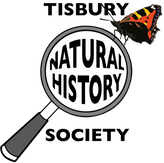|
Our friends at Butterfly Conservation have published this useful advice on what to do if you find a butterfly in your house at this time of year. They say:
'It is often a problem for the concerned householder in winter, how best to help these poor confused butterflies unwittingly tricked into thinking spring has come early. We are often asked what to do with a hibernating butterfly in your home, garage or shed. 'The best solution is to rehouse the butterfly into a suitable location. Catch the butterfly carefully and place it into a cardboard box or similar, in a cool place for half an hour or so to see if it will calm down. 'Once calmed down you might be able to gently encourage the sleepy butterfly out onto the wall or ceiling of an unheated room or building such as a shed, porch, garage or outhouse. Just remember that the butterfly will need to be able to escape when it awakens in early spring. 'If you have no options at all for suitable hibernation places, then it would be best to keep the butterfly as cool as possible, to minimise activity, and then to release it outside during a spell of nice weather. 'Among the butterflies, it is only the Small Tortoiseshell and Peacock that regularly overwinter inside houses. They come in during late summer/early autumn when it is still warm outside and our houses appear to provide suitably cool, sheltered dry conditions. 'However, come Christmas, when the central heating is cranked up, such butterflies may be awoken prematurely by high indoor temperatures. This presents a major problem for the butterfly as the outside weather conditions may be very hostile and there is little nectar available in gardens.' Sign up to Butterfly Conservation's free email newsletter for gardening tips and more. ID the butterfly you have found Comments are closed.
|
Photo: Avocets (Izzy Fry)
The headers display photos taken by our members. Do get in touch via the Contact Form if you'd like to submit a photo for selection.
Archives
May 2024
Categories
All
|

 RSS Feed
RSS Feed